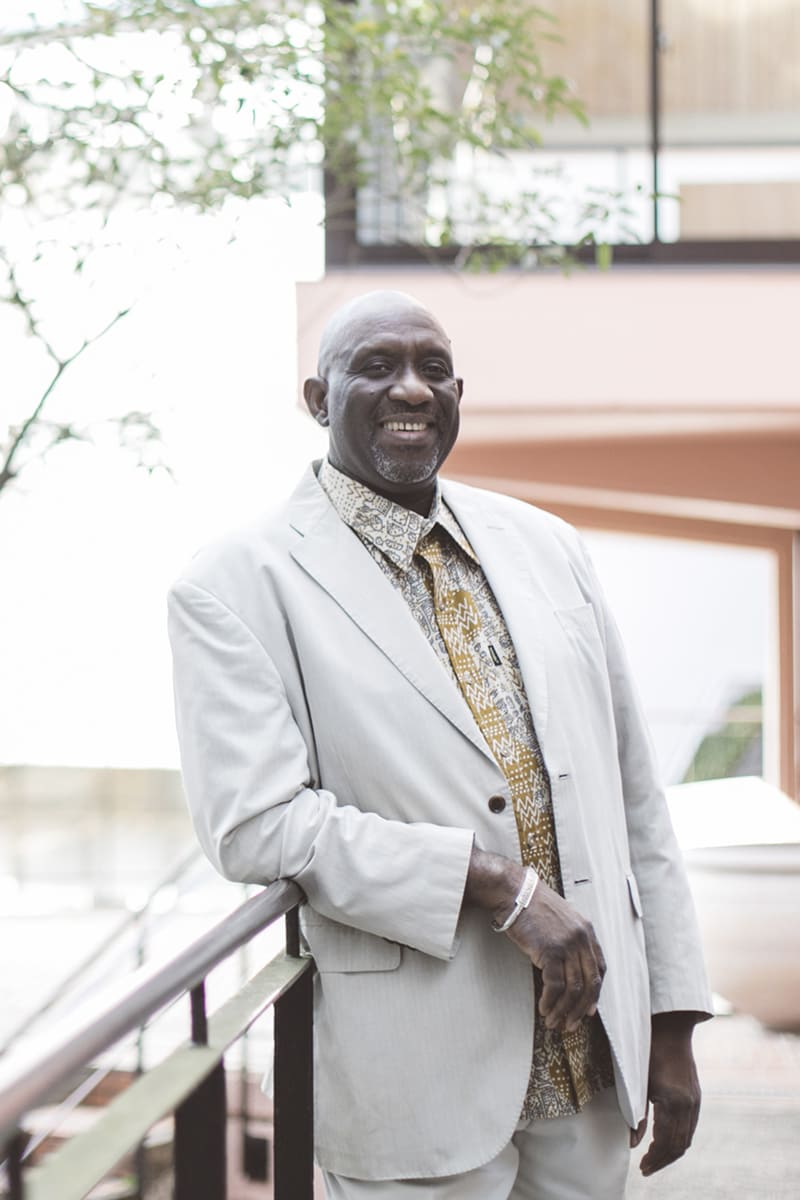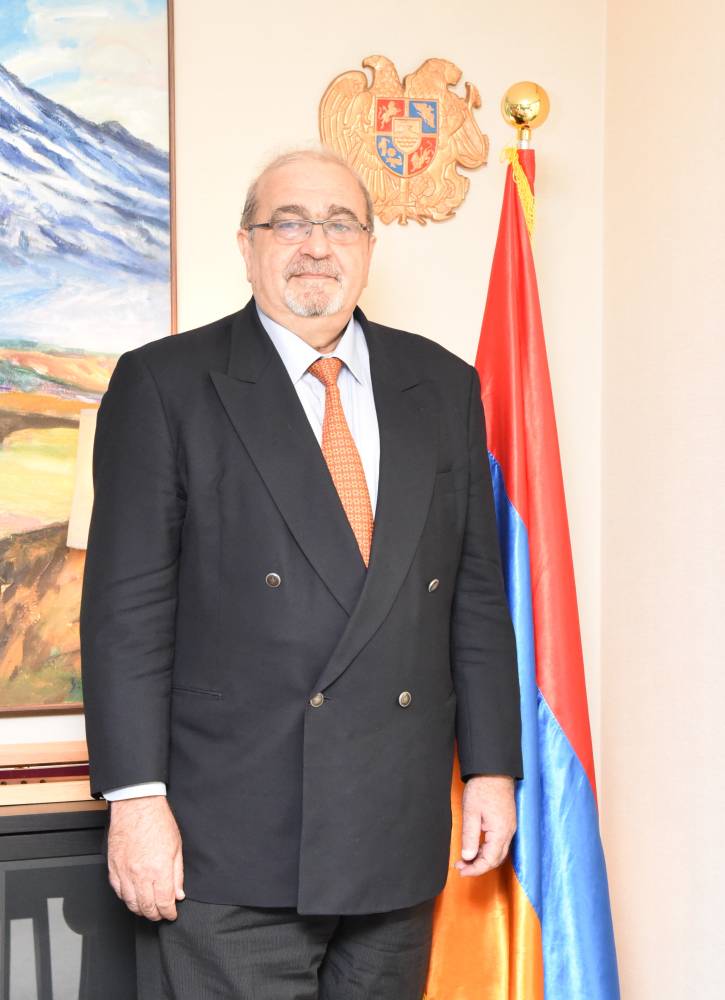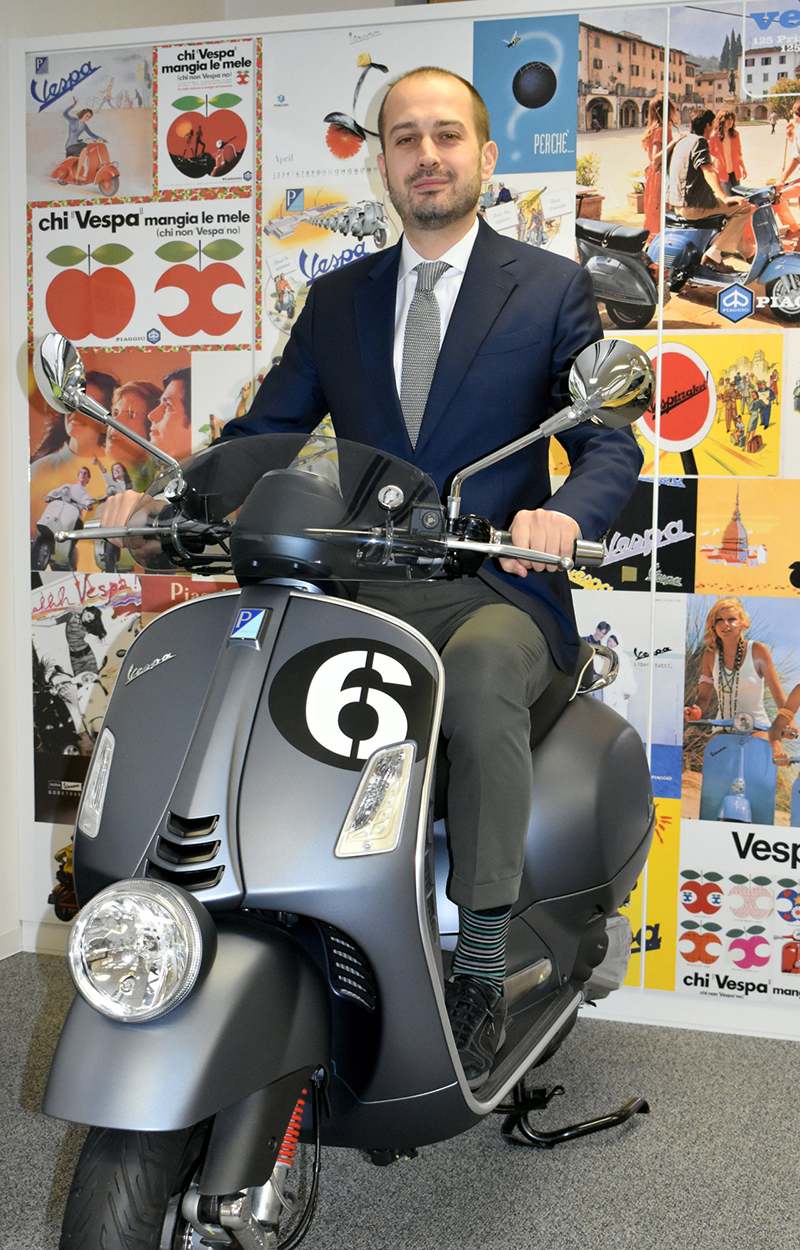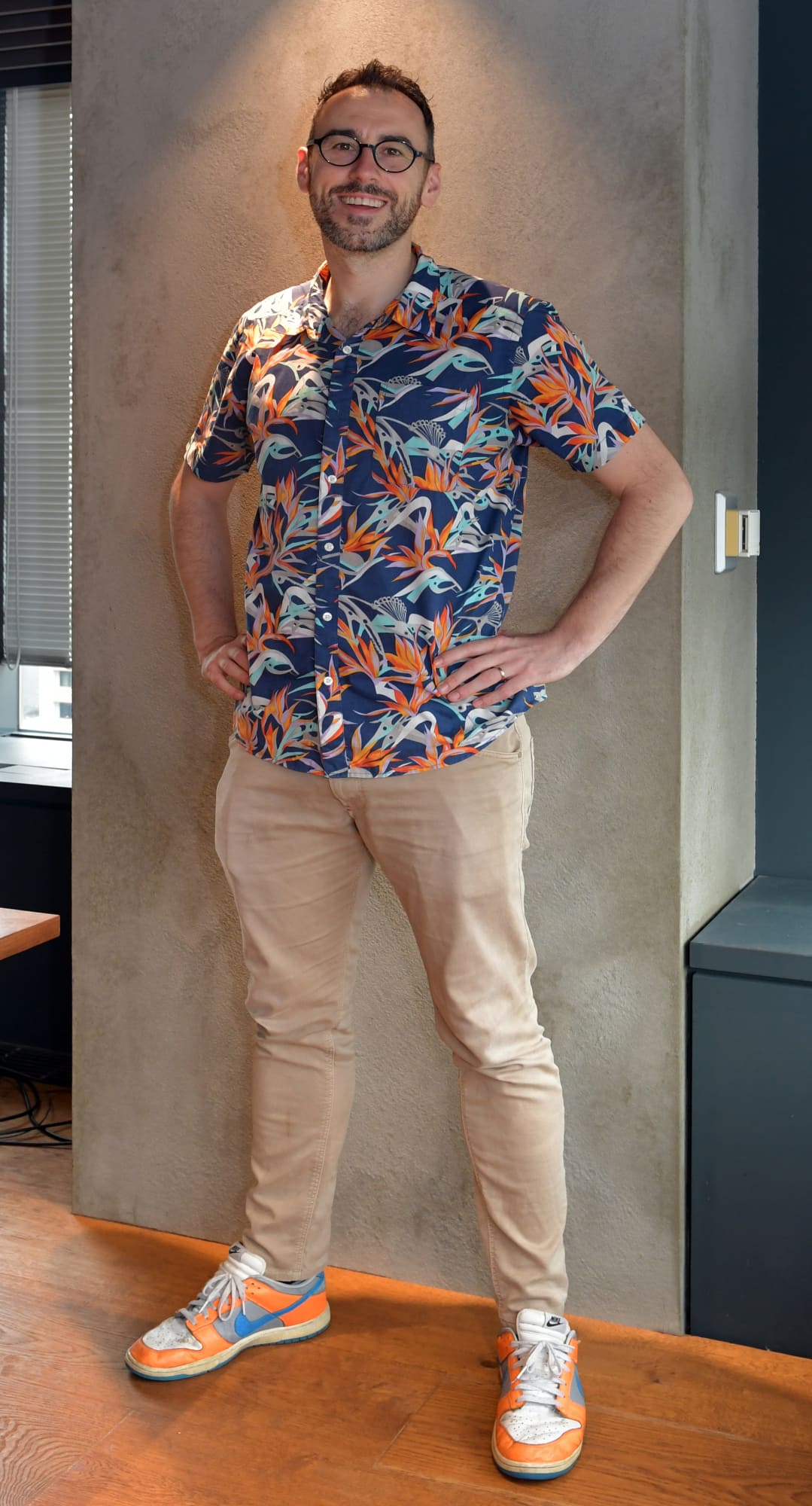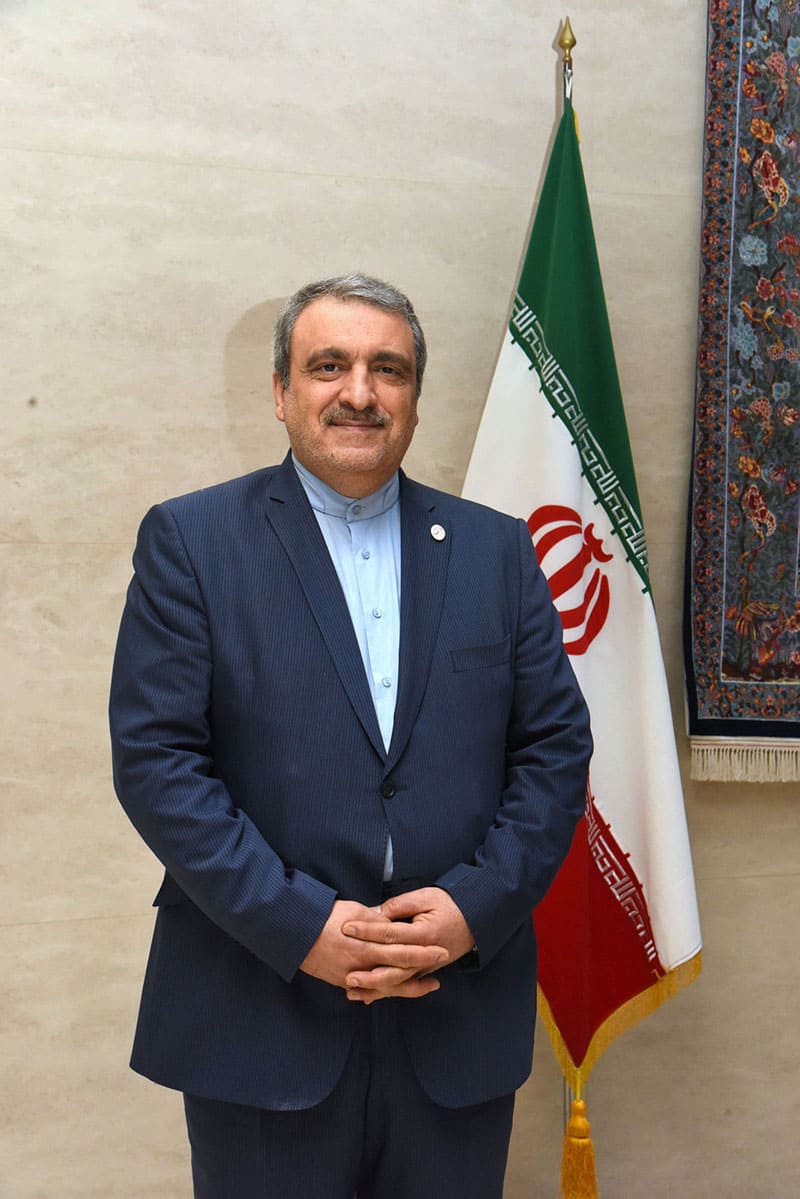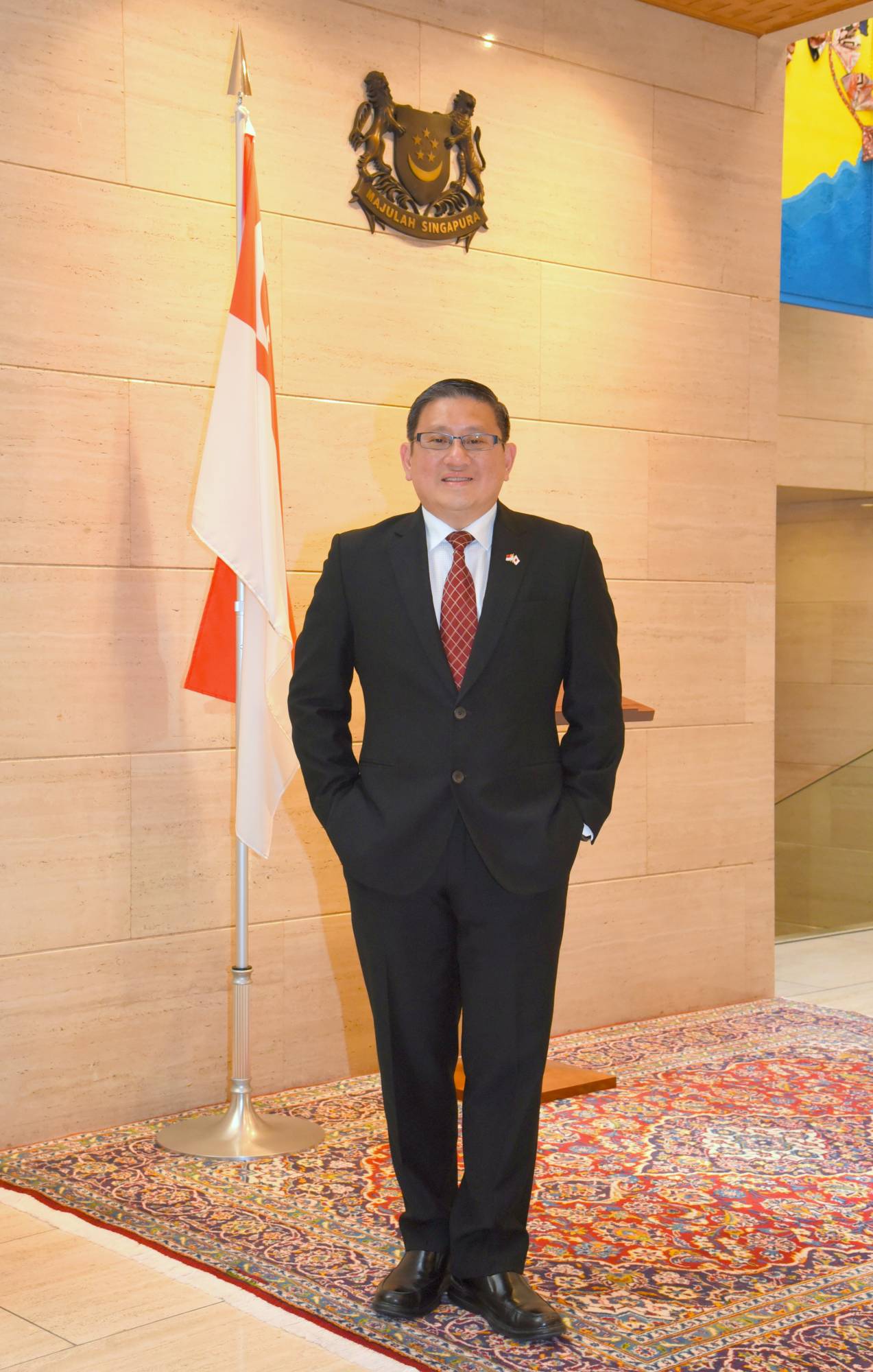
April 19, 2020
Bridging cultures through ‘food diplomacy’ and more
Singaporean Ambassador Peter Tan Hai Chuan on growing up with Japan
BY LOUISE GEORGE KITTAKA
CONTRIBUTING WRITER
- Name: Peter Tan Hai Chuan
- Title: Ambassador of Singapore (since October 2019)
- URL: https://www.mfa.gov.sg/tokyo
- DoB: Sept. 11, 1967
- Hometown: Singapore
- Years in Japan: 7
Peter Tan Hai Chuan was looking forward to enhancing opportunities for bilateral cooperation when he took up his position as Singapore’s ambassador to Japan last October.
“Singapore and Japan have excellent relations and we cooperate on multifaceted fronts,” he said. “So the challenge for me, in taking up the post as the new ambassador, is what more can I do?”
Tan was still settling into his role when COVID-19 hit. With most of the world currently experiencing the pandemic, Tan believes the need for nations to combine synergies is greater than ever. “Singapore and Japan — as well as the international community — should work closely together to combat this virus that respects no borders. We could share experiences and exchange policy ideas,” he said.
“There is the important aspect of personal health and well-being, but also an economic aspect. Even as we do our best to protect the well-being of our own people, it is also critical that we secure minimal disruption to the global supply chain and the flow of essential goods,” he said.
Tan has a deep appreciation for the culture of both his homeland and his host country. His association with Japan goes back to his school days, when he selected Japanese as a foreign language option as a first year in secondary school. He subsequently visited on a trip at 15.
“I was in a group of students that went to Kanazawa (Ishikawa Prefecture). We spent two weeks there attending classes with host families’ children, and that was my first taste of Japan,” he said.
Even then, Tan was impressed by the consideration the local people showed him and his companions, such as when a complete stranger went out of her way to guide them to their destination. “To me, this was the spirit and the essence of omotenashi (traditional Japanese hospitality).”
“My love for the culture, language and traditions evolved, and I actually continued throughout my years at Singapore National University, where I double majored in political science and Japanese studies,” Tan said.
When considering potential career paths in public service upon graduation, Tan found himself drawn to the foreign ministry. “My very first assignment was on the Japan desk in 1992, looking after Singapore’s relations with Japan. I had my first overseas posting in 1995 in Tokyo, and that is how my diplomatic career developed,” he said.
Now on his third posting in Japan, Tan is the first Singaporean ambassador to Japan to be assigned to Tokyo three times. In between stints in Japan, he has also represented his country in South Korea and Malaysia, and maintains a strong interest in Southeast Asian affairs.
Tan has seen many things evolve in Japan since his first visit as a teenager. Kanazawa is now a thriving tourist center. “I’ve been back to Kanazawa and it’s changed a lot. The school I attended is no longer there, it’s now the 21st Century Museum of Contemporary Art,” he said.
In terms of Tokyo, Tan cites infrastructure as one of the greatest changes. “The thing that struck me when I arrived last October was the physical changes in downtown Tokyo — huge modern developments,” he said, adding that this has resulted in Tokyo becoming much more cosmopolitan. However, against all the cutting-edge architecture he is now seeing, Tan is pleased that elements of traditional Japanese life still remain in the capital.
Tan believes Singapore and Tokyo can combine their strengths in innovation and technology to support the development of “smart cities” in Southeast Asia. Smart cities are urban areas that collect and utilize electronic data to manage and allocate resources and services in the most optimal way for citizens.
Speaking of citizens, Tan notes that ties between the two nations are anchored by numerous Singapore friendship associations and partnerships established across Japan. “In October 2019, we held the inaugural Singapore Fair in the city of Rikuzentakata in Iwate Prefecture, with which we have a very close relationship following the 2011 Great East Japan Earthquake,” he said. “Such exchanges will help deepen mutual understanding and forge new bonds between our peoples.”
Tan works hard but also pursues a variety of hobbies, including collecting colorful works of art, that reflect his own connection to Peranakan culture. The term “Peranakan” generally refers to people of mixed Chinese and Malay or Indonesian heritage, many of whom can trace their origins back to 15th-century Malacca, where their ancestors were thought to be Chinese traders who married local women.
He is passionate about cooking, and in the spirit of what he laughingly describes as “food diplomacy,” he enjoys serving Peranakan dishes for guests when entertaining at home. “To me, cooking is therapeutic,” Tan said. “If I had to choose one dish, it would be babi sio. It’s a pork belly dish cooked with coriander powder and bean paste. I try to bring in Japanese flavors so I substitute the bean paste with miso.”
Tan has also enjoyed the quintessential Japanese pastime of karaoke since his student days, as it was an ideal way to improve language skills and learn more about Japanese popular culture.
Tan is always aware of the responsibility of being a bridge between Japan and Singapore, making himself available to his staff, his business contacts and the community in Japan as much as possible. “Always close and never closed,” he said.
Language studies bolster various roles
Peter Tan Hai Chuan earned a bachelor’s from the National University of Singapore and a master’s in East Asian studies from Columbia University as a Fulbright scholar. He joined the Singaporean Ministry of Foreign Affairs in 1992 where he has utilized his Japanese language skills in various capacities. He has represented Singapore twice before as first secretary (1995 to 1998) and as deputy chief of mission (2002 to 2005).
Tan has also served as counsellor at the Singapore High Commission in Kuala Lumpur, and as Singapore’s ambassador to South Korea, with concurrent accreditation to Mongolia. He maintains a strong interest in international affairs, as reflected in his most recent assignment before coming back to Tokyo, as deputy secretary for Southeast Asia and the Association of Southeast Asian Nations (2015 to 2019). He was awarded the Public Administration Medal (Silver) in 2008. In his role as a diplomat, Tan aspires to “remember the past, appreciate the present and plan for the future.”

